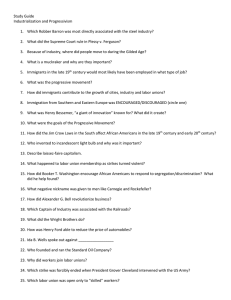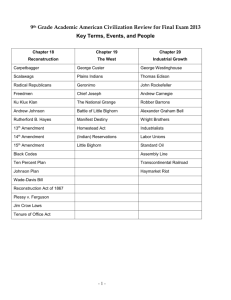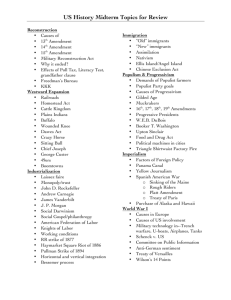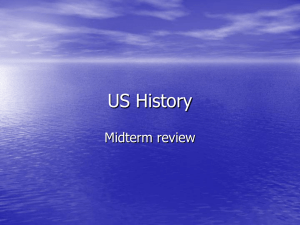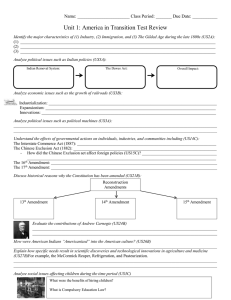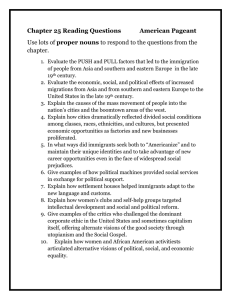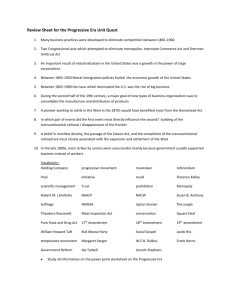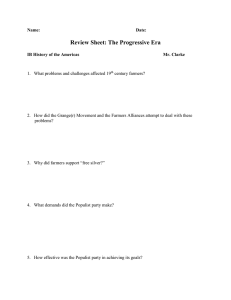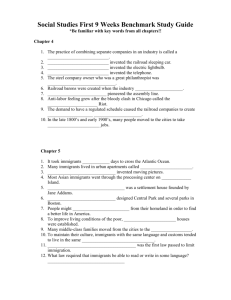Match the term on the left with its definition on the right: M 17th
advertisement
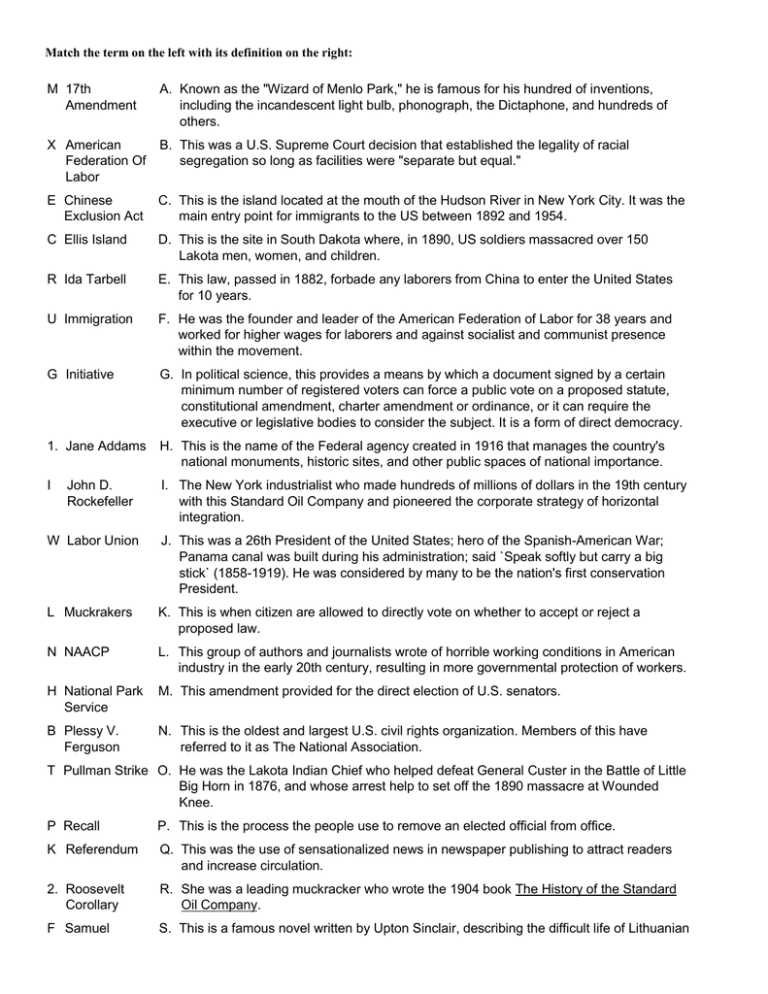
Match the term on the left with its definition on the right: M 17th Amendment A. Known as the "Wizard of Menlo Park," he is famous for his hundred of inventions, including the incandescent light bulb, phonograph, the Dictaphone, and hundreds of others. X American Federation Of Labor B. This was a U.S. Supreme Court decision that established the legality of racial segregation so long as facilities were "separate but equal." E Chinese Exclusion Act C. This is the island located at the mouth of the Hudson River in New York City. It was the main entry point for immigrants to the US between 1892 and 1954. C Ellis Island D. This is the site in South Dakota where, in 1890, US soldiers massacred over 150 Lakota men, women, and children. R Ida Tarbell E. This law, passed in 1882, forbade any laborers from China to enter the United States for 10 years. U Immigration F. He was the founder and leader of the American Federation of Labor for 38 years and worked for higher wages for laborers and against socialist and communist presence within the movement. G Initiative G. In political science, this provides a means by which a document signed by a certain minimum number of registered voters can force a public vote on a proposed statute, constitutional amendment, charter amendment or ordinance, or it can require the executive or legislative bodies to consider the subject. It is a form of direct democracy. 1. Jane Addams H. This is the name of the Federal agency created in 1916 that manages the country's national monuments, historic sites, and other public spaces of national importance. I I. The New York industrialist who made hundreds of millions of dollars in the 19th century with this Standard Oil Company and pioneered the corporate strategy of horizontal integration. John D. Rockefeller W Labor Union J. This was a 26th President of the United States; hero of the Spanish-American War; Panama canal was built during his administration; said `Speak softly but carry a big stick` (1858-1919). He was considered by many to be the nation's first conservation President. L Muckrakers K. This is when citizen are allowed to directly vote on whether to accept or reject a proposed law. N NAACP L. This group of authors and journalists wrote of horrible working conditions in American industry in the early 20th century, resulting in more governmental protection of workers. H National Park Service M. This amendment provided for the direct election of U.S. senators. B Plessy V. Ferguson N. This is the oldest and largest U.S. civil rights organization. Members of this have referred to it as The National Association. T Pullman Strike O. He was the Lakota Indian Chief who helped defeat General Custer in the Battle of Little Big Horn in 1876, and whose arrest help to set off the 1890 massacre at Wounded Knee. P Recall P. This is the process the people use to remove an elected official from office. K Referendum Q. This was the use of sensationalized news in newspaper publishing to attract readers and increase circulation. 2. Roosevelt Corollary R. She was a leading muckracker who wrote the 1904 book The History of the Standard Oil Company. F Samuel S. This is a famous novel written by Upton Sinclair, describing the difficult life of Lithuanian Gompers immigrants working in Chicago's Union Stock Yards at the end of the 19th century. O Sitting Bull T. This nationwide strike crippled much of the railroad industry in 1894, but was eventually ended by the Federal government. Z Standard Oil Company U. This is the movement of people into a new country or political unit, resulting in a change of personal, permanent residence. S The Jungle V. This is a financial institution that manages investments, assets, and records for another institution. They may be an independent partnership, bank or law firm. J Theodore Roosevelt W. This is an organization of workers that negotiates with employers for better pay, benefits, and working conditions. A Thomas Edison X. This was one of the first groups of labor unions in the United States that later merged with the CIO. Y Transcontinental Y. Completed by largely Chinese and Irish labor, this railway was completed in Railroad Promontory Point, Utah, 1869, linking the western and eastern parts of the United States. V Trust Z. This was the first major oil trust founded in 1870 by John D. Rockefeller and dissolved by the US Supreme Court in 1911. D Wounded Knee 1. She was a founder of Hull House, a settlement house that helped immigrants of the late 19th century become acclimated to life in the United States, and was a pioneer in the field of social work. Q Yellow Journalism 2. This policy reasserted the U.S. position as protector of the Western Hemisphere.
